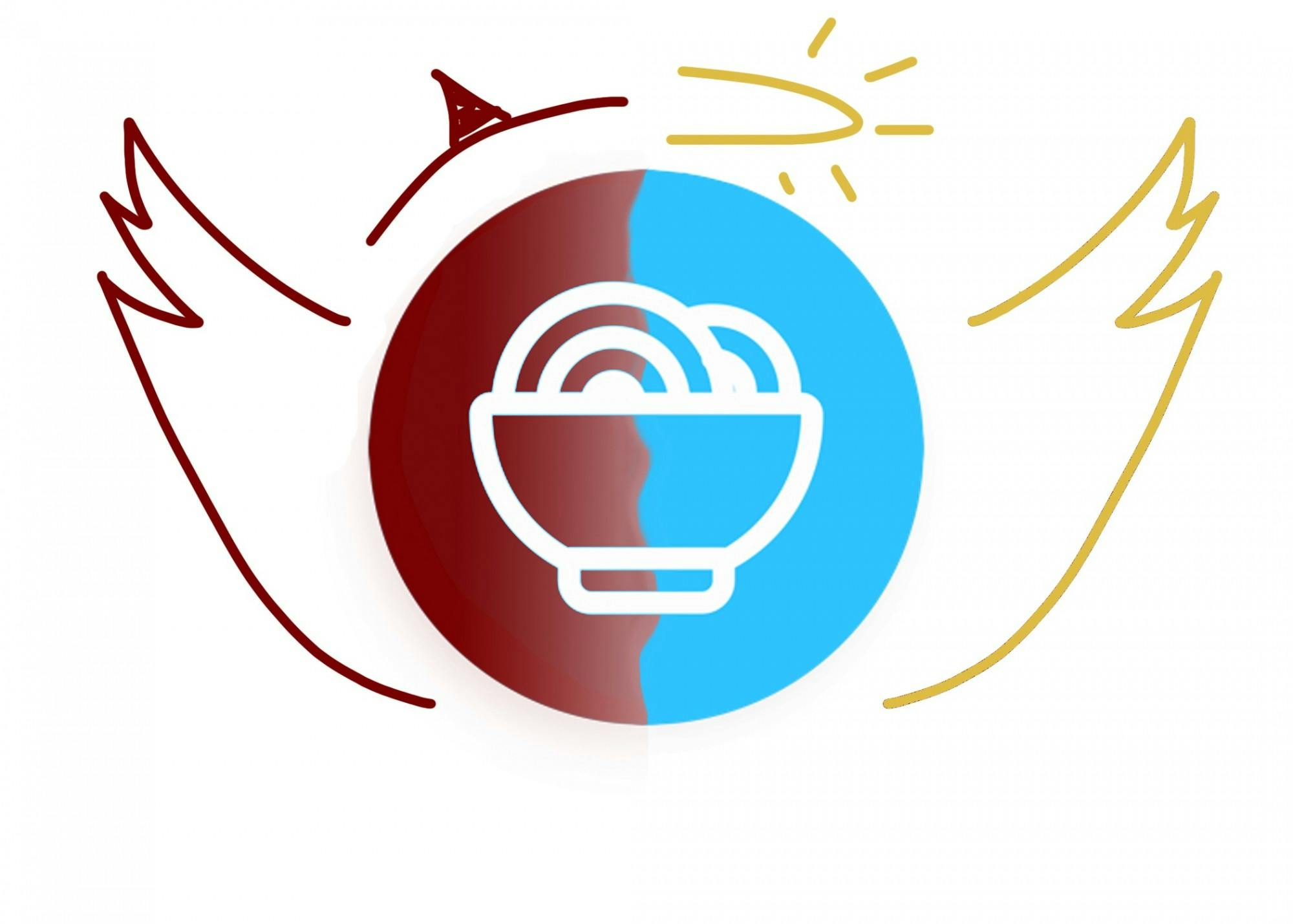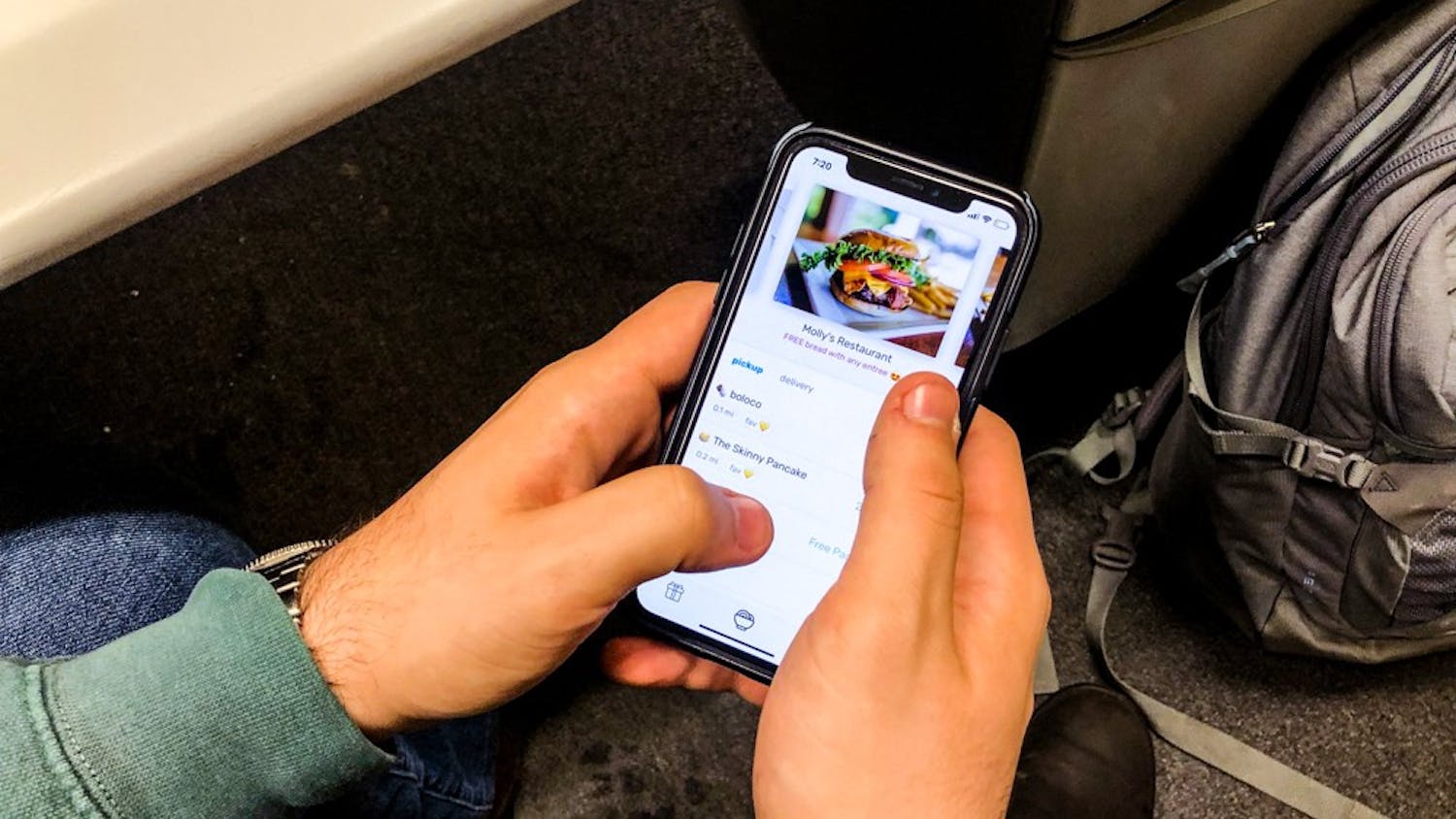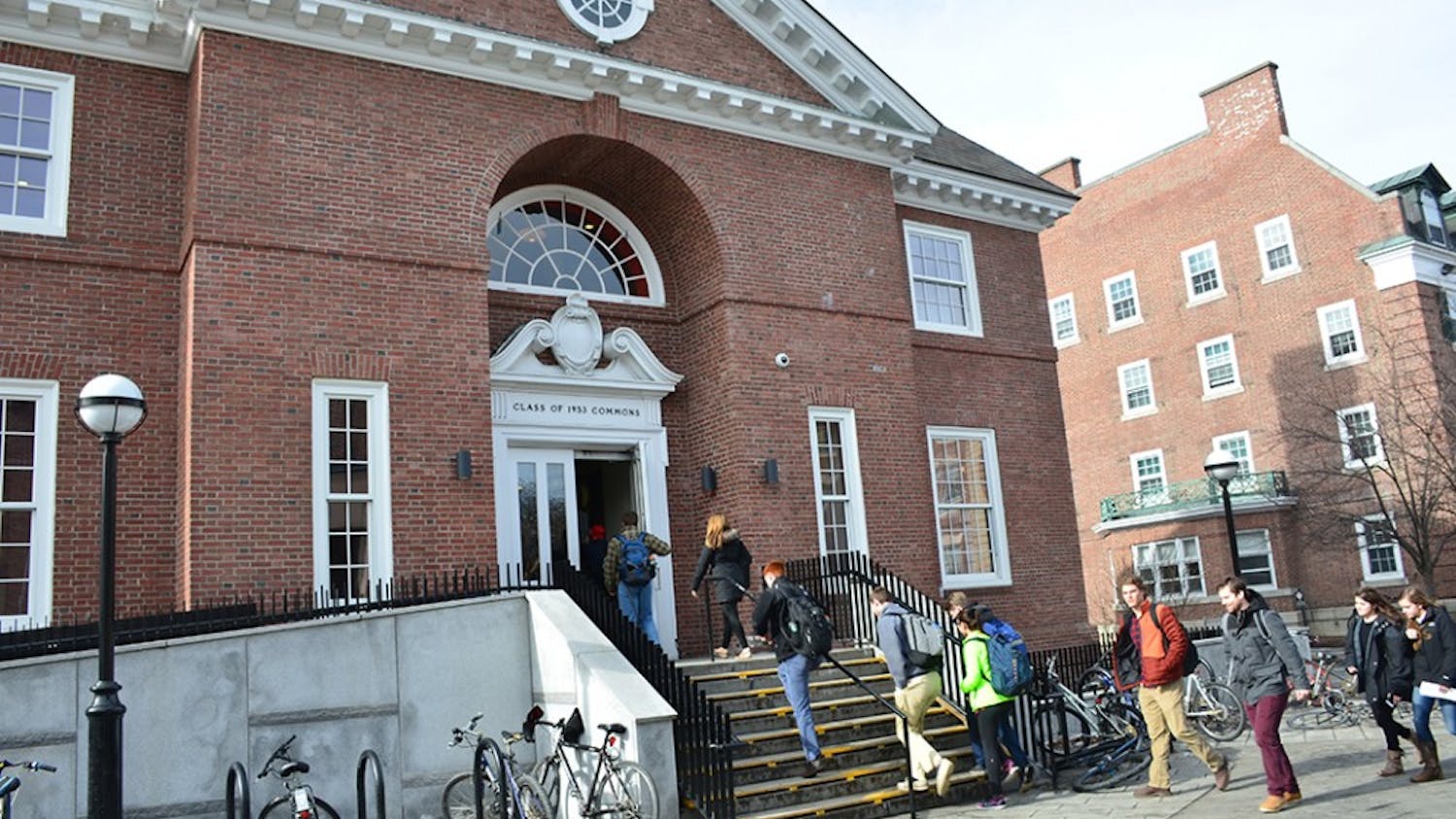At the height of my Snackpass clout, I had 30 discounted entrees, 20 of them entirely free. When Snackpass launched on Dartmouth’s campus, I encouraged all my friends to use my referral code so we could both get discounts. And with the benefit of free food, it wasn’t too hard to convince most people.
But some of my friends had their hesitations. “Yeah, I mean the app sounds good, but who’s losing money here? Someone’s got to be losing money,” they’d say.
It was a valid concern — one I, too, shared. When they give out over $9,000 of free pad thai in one day, it’s hard not to ask yourself where the money is coming from. And with Hanover already being an uber-competitive place for restaurants, I worried that this may, in some way, be taking advantage of our local businesses.
However, it appears that Snackpass can be beneficial for both businesses and consumers.
Snackpass is a food-ordering app that allows people to place takeout orders at local restaurants, with some restaurants offering delivery. The company was founded in 2017 and has expanded to 16 college campuses. It touts a 75 percent penetration rate among students in six months and has recently received $21 million in funding to continue its expansion, according to Tech Crunch. Snackpass’s goal is to reach 100 campuses within the next two years.
It launched at Dartmouth in April 2019, and since then has used a combination of merchandise, flash promotions, student ambassadors and even Snackpass-branded parties to gain a cult following on campus.
One thing that sets Snackpass apart from its competitors is its social functions. The app allows users to accumulate rewards points that can be redeemed for discounts and gifted to friends. Users can also create a profile and interact with friends on the platform.
How the app works on the consumer end is plain to see, but what many students don’t know is how it works on the restaurant side.
On its website for potential partners, Snackpass boasts that it can “[analyze] your business and target demographics” to “take the guesswork out of growth with custom campaigns that fit the university’s culture.”
It also says it can help restaurants “expand [their] brand” and that partners can take advantage of Snackpass’ campus takeovers, spotlight placement, and college ambassadors to reach new customers.
In Hanover, 12 restaurants have partnered with Snackpass so far. According to Chris Gale, co-owner of Noodle Station, he and his wife originally had some reservations about joining Snackpass because it was such a new business. But after a few conversations with Jonathan Cameron, co-founder of Snackpass, they were convinced.
“We started to gain some interest because there were other restaurants in town that were doing it, so we knew if it was working for them, it should work for us,” Gale said. “That kind of helped minimize our hesitations. So then we decided to go for it, and Jonathan made it pretty easy for us to get on board. We didn’t feel like we were taking a chance, we were just getting into something new. We thought of it as the wave of the future.”
Other factors that minimized their concerns were Snackpass’ performance on other college campuses and the lack of contracts cementing their relationship, Gale said. There wasn’t a lot of risk involved, and if it wasn’t working out, they could quit at any time, he said.
“If there was a contract we would’ve had to sign, that may have altered our decision,” Gale said. “Contracts can be a little scary for people and I think Jonathan probably understands that. Usually, if something is good and it works, people will stick with it. I think Jonathan always seemed quite confident with his program, so I think a contract probably wouldn’t be required to keep people using his service.”
Jennifer Packard, function manager of Molly’s, said she was encouraged by the positive reviews of others who had experience with Snackpass, but she wanted to take time to integrate it to fit with the systems Molly’s already had in place.
Molly’s relationship with Snackpass is slightly different, as it is a more traditional sit-down restaurant compared to some of the fast-casual places that Snackpass typically attracts. For example, Packard said if there is a long line for dine-in customers, Snackpass customers may have to wait a few minutes to recieve their order.
“Hanover has an array of restaurants, and [Snackpass] certainly adds a component to a lot of the restaurants that haven’t capitalized on take-out in the past,” Packard said. “I think this is a good vehicle and opportunity for them to do so. It can be hard when you are known to be more of a restaurant-style, sit-down restaurant than a very fast-paced in-and-out kind of place. It can be a challenge if you don’t have the methods in place to do that.”
Overall, Packard said that the positives of Snackpass far outweigh the negatives, and that it has helped Molly's increase the amount of takeout sales.
In addition to increasing takeout sales, Snackpass also helps some partner restaurants run more efficiently. Gale said he can handle more orders in less time because he can cut human interaction out of the process.
Tuk Tuk Thai owner Pannipa Pace agrees that the platform is ultimately positive, but said that there have also been quite a few hiccups. She said she has experienced issues in the app both with take-out orders and the new delivery service. For instance, sometimes the system won’t send the order to the correct printer, and customers have to wait a long time to receive their food.
Pace said she is waiting to see if the issues get resolved. While she is hesitant to continue with the delivery service because of the higher prices for customers, she said she is still working with Snackpass to try and resolve the issues.
“They’re trying to improve, but let’s see,” Pace said. “If they get the program 100 percent, we’re happy to use them.”
Recently, Noodle Station started using Snackpass promotions, such as a recent $1 boba campaign, which Gale called “quite successful.” Moving forward, Gale said he is excited to keep working with Snackpass to create a monthly promotion and explore the possibility of delivery service.
“It’s nice to know that, at any time, we could start up a promotion and generate some new business and create some excitement and energy,” Gale said. “When we did $1 boba, you could almost just feel the energy.”




